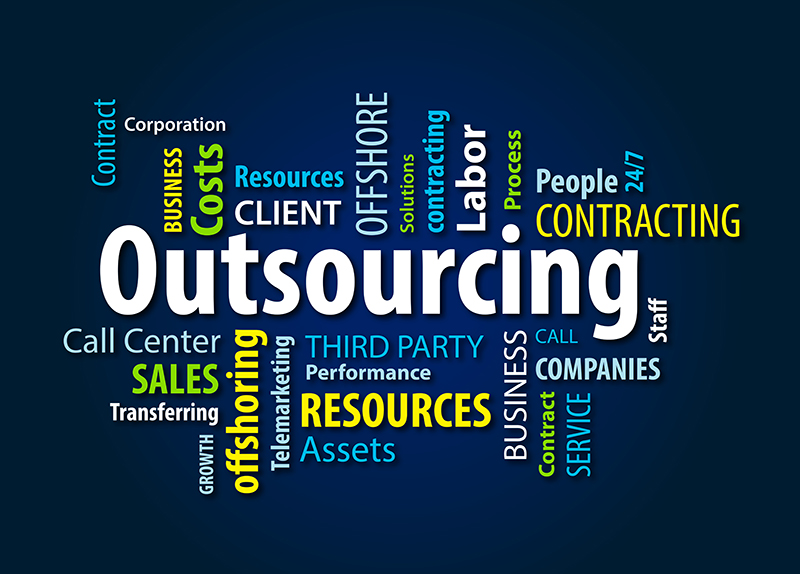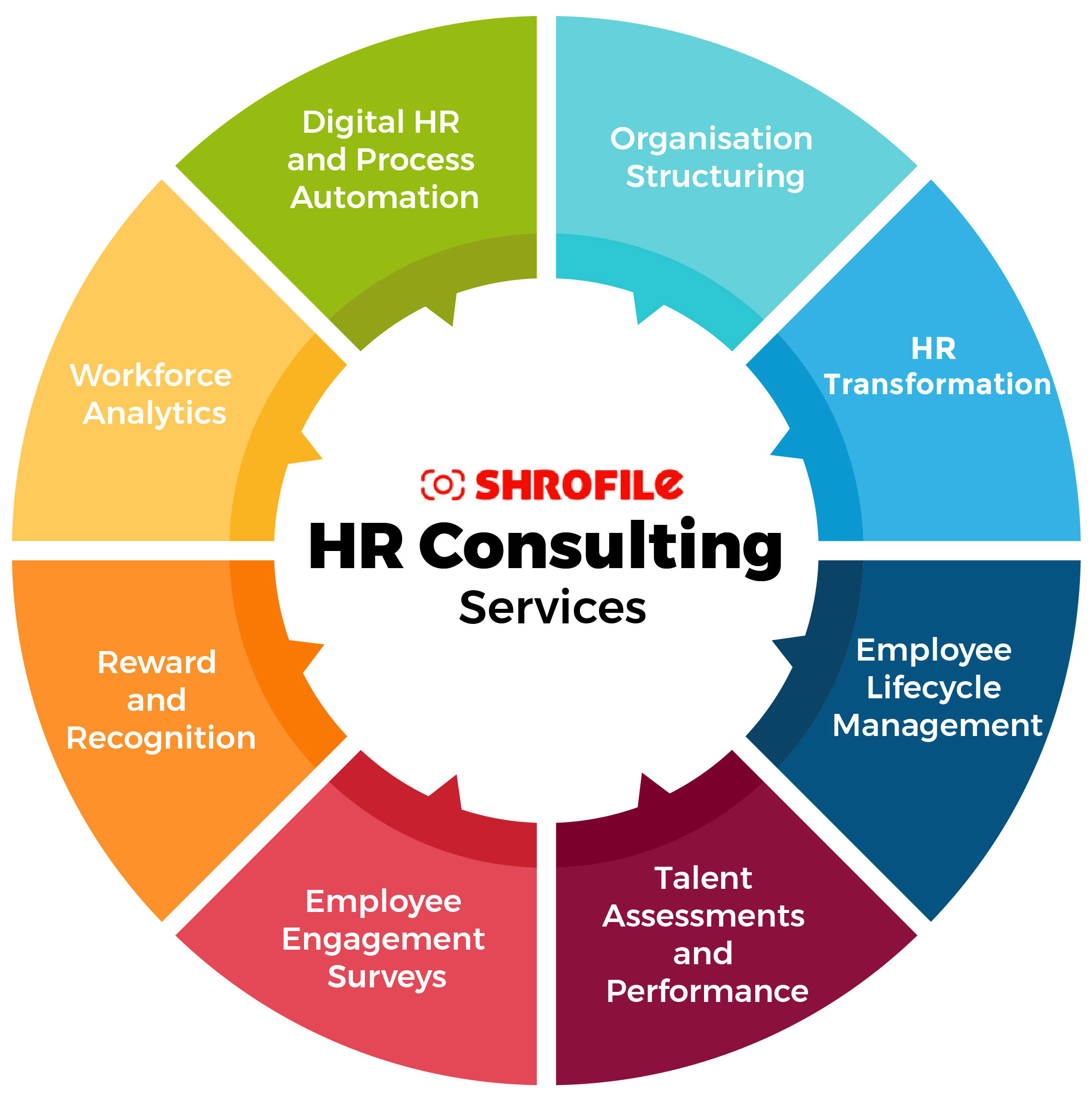Outsourcing Payroll: Maximize Efficiency And Minimize Expenses
페이지 정보

본문

✔ Outsourcing payroll might decrease administrative problems, conserve time, and ensure compliance with tax laws.
✔ Cost cost savings range from 18%-35% typically compared to in-house payroll processing.
✔ Payroll suppliers handle wage estimations, tax filings, direct deposits, benefits reductions, and more.
✔ Businesses of all sizes advantage, particularly those without dedicated payroll staff.
✔ Choosing the best payroll service depends on business size, intricacy, and need for integration with existing systems.

Every other Friday, Lisa braced herself for what had basically become a continuous source of stress: payroll. As the workplace supervisor for a growing home services company, she used lots of hats: scheduling jobs, managing invoices, handling HR jobs, and more. Payroll was simply one more duty on her overflowing plate, and in spite of her finest efforts, something always appeared to go wrong.

Last pay period, she overlooked overtime for 2 specialists, resulting in a payroll correction that took hours to fix. The month in the past, a tax filing deadline slipped through the cracks, leading to a costly late fee. And then there were the constant questions from workers about their incomes - was my reward consisted of? Why are my reductions various this week? Is there still time to correct my punch card? When will I get my W-2?
Lisa's tension level was through the roof. Something had to change. Accordingly, Lisa began exploring her options. What if the business had somebody else deal with payroll? By handing off payroll to an expert service provider, or, at least, upgrading their software, she could eliminate the risk of mistakes, ensure compliance with tax laws, and maximize hours weekly to concentrate on running the service.
Does your payroll journey imitate Lisa's? Is payroll a barrier that looms at the end of every other week? Luckily, you're not alone. In this short article, we'll check out how outsourcing payroll works, the advantages it provides, and whether it's the right move for your service.
Outsourcing payroll is the practice of handing off payroll-related tasks to a third-party provider who focuses on processing incomes, taxes, and other compensation-related responsibilities. Instead of handling payroll by hand - or juggling numerous software options - organizations can rely on professionals to ensure employees are paid properly and on time while remaining certified with tax laws.
Payroll companies handle a range of jobs, consisting of:
✅ Processing employee earnings and specialist payments;
✅ Calculating and filing payroll taxes;
✅ Managing direct deposits and paper checks;
✅ Handling deductions, garnishments, and benefits contributions; and
✅ Keeping up to date with ever-changing labor laws and tax rates.
Approximately 61% of companies outsource their payroll procedures. The choice to contract out the entire function or section out portions, such as tax filings or direct deposit management, mostly depends upon company size, payroll complexity, and internal resources.
For bigger companies with staff members across several states, payroll outsourcing can simplify compliance with various tax laws and regulations. But little and mid-sized organizations likewise benefit - specifically those without a dedicated payroll professional. Considered that payroll laws regularly change, contracting out ensures services remain certified without needing to continuously keep an eye on updates.
Years ago, it was unprecedented for companies to entrust payroll to an outside company. But today, advances in payroll innovation make outsourcing an affordable and efficient option. Whether you need full-service payroll support or simply aid with particular tasks, outsourcing can maximize valuable time, lower administrative headaches, and provide entrepreneur comfort. Statistics back this up. According to a PwC research study, business that outsource their payroll functions experience expense reductions of 18%-35%, typically.
Is contracting out payroll the best choice for your business? In the next section, we'll check out the crucial advantages and possible drawbacks to assist you decide. If not, a best practice may consist of upgrading your internal software. While we're prejudiced, an option like OnTheClock enables you to encapsulate time tracking, scheduling, and payroll in one platform. No more third-party costs, delays, or mistakes!
Don't let taxes get you down. Make payroll simple with OnTheClock!
Your hassle-free option for payroll.
The Benefits of Outsourcing Payroll
Having your personnel complete payroll might appear like a cost-savings measure; however, the truth is that it's typically time-consuming, complex, and prone to costly mistakes. Outsourcing payroll offers services a streamlined, safe and secure, and cost-efficient option. Here's how it can benefit your business:
Save Time and Boost Productivity: Payroll isn't just about moving earnings - it involves tracking hours, determining taxes, handling advantages deductions, and guaranteeing compliance with ever-changing regulations. For small companies, this obligation typically falls on a bachelor or a little HR group, pulling focus far from strategic efforts. Outsourcing payroll eliminates these time-consuming jobs, maximizing your team to concentrate on development and employee engagement.
Reduce Payroll Costs: Many small and mid-sized organizations discover that outsourcing payroll is more affordable than preserving an internal payroll team. The expenditures connected with payroll software, staff member training, tax filing, and compliance management can build up quickly. By outsourcing, business can access expert payroll services at a foreseeable regular monthly cost - typically less than the cost of employing a full-time payroll professional.
Minimize Errors and Ensure Compliance: Payroll errors aren't simply frustrating - they can cause substantial punitive damages. From overestimating tax withholdings to missing out on due dates, errors can activate audits, fines, and dissatisfied staff members. Payroll companies concentrate on tax compliance, remaining up to date on federal, state, and regional regulations to guarantee precise filings and prompt payments.
Enhance Data Security: Payroll information consists of sensitive employee details, such as Social Security numbers and bank account details. Cybersecurity risks and internal scams threats make payroll security a top concern. Professional payroll providers invest in advanced encryption, safe and secure cloud storage, and multifactor authentication to keep your information safe.
Avoid Payroll Disruptions: If your in-house payroll professional takes a vacation, gets ill, or leaves the company, payroll operations can be thrown into turmoil. Outsourcing provides continuity and dependability, guaranteeing payroll is processed properly and on time, every time.
Simplify Direct Deposit and Benefits Integration: Many small companies battle to establish direct deposit or correctly integrate payroll with advantages administration. Payroll suppliers simplify this process, ensuring employees are paid without delay and deductions for benefits like medical insurance and retirement plans are managed properly.
Scale With Your Business: As your company grows, payroll intricacy boosts. More employees mean more tax obligations, advantage choices, and compliance requirements. A payroll company can scale with your company, adapting to new obstacles without requiring you to hire extra HR personnel.
The Downsides of Outsourcing Payroll
While contracting out payroll can conserve time and lower administrative concerns, it's not without its challenges. Before dedicating to an external company, it's necessary to weigh the prospective drawbacks and figure out whether the trade-offs align with your business's needs.
Loss of Control Over Payroll Processes: When you contract out payroll, you relinquish direct oversight of crucial payroll functions. While automation and dedicated payroll specialists can reduce errors, you might have restricted exposure into the procedure. If a mistake occurs, such as an inaccurate paycheck or a missed tax filing, it could take longer to fix than if payroll were handled internal. Additionally, you may need to count on customer support teams with differing levels of responsiveness instead of making immediate modifications yourself.
Data Security Concerns: Outsourcing needs sharing delicate employee information, including Social Security numbers, incomes, and tax information, with a 3rd celebration. While most payroll providers execute robust security measures, information breaches stay a threat. Additionally, since you don't control their security protocols, you're relying on their ability to protect worker data. Any lapse in security might lead to identity theft, compliance concerns, or financial losses.
Limited Customization and Flexibility: Payroll suppliers usually use standardized services that may not perfectly line up with your company's needs. If your business has special payroll structures, such as specific bonus offers, commissions, or industry-specific reductions, adapting to a third-party system can be challenging. Furthermore, last-minute payroll modifications, such as adding a cost compensation or remedying a tax code, might not be as smooth as they would be with an in-house payroll group.
Potential Hidden Costs: While outsourcing can seem affordable, expenditures can build up beyond the base membership cost. Some suppliers charge extra for year-end tax filings, compliance updates, off-cycle payroll runs, or integration with other service software application. If your business needs regular payroll adjustments or personalized reporting, these additional expenses can quickly exceed the initial spending plan. Employee Experience Challenges: When payroll is contracted out, workers typically need to call a third-party provider for payroll-related concerns or problems. This can create a detach, as employees may battle with impersonal customer care, long wait times, or inconsistent assistance quality. Unlike an in-house payroll group that comprehends business culture and policies, an outsourced supplier may not offer the very same level of familiarity or responsiveness.
Dependency on Provider Stability: Depending on an external business for payroll implies your service is susceptible to its operational stability. If the company experiences financial difficulty, technical failures, or sudden service interruptions, your payroll process might be affected. In severe cases, a supplier closing down suddenly might result in lost payroll data and significant functional headaches.
The Different Types of Payroll Services
Not all payroll outsourcing services are developed equal. Businesses have different requirements, and payroll companies provide various levels of service to accommodate them. Whether you want to hand off everything or maintain some control, there's an outsourcing model that fits your company. Here are the primary kinds of outsourced payroll services:
1. Full-Service Payroll Outsourcing: If you're searching for an entirely hands-off approach, full-service payroll outsourcing is the way to go. This type of provider manages every element of payroll, including:
- Calculating wages and deductions;
- Managing tax filings and compliance;
- Administering worker advantages; and
- Handling direct deposits and incomes.
With a full-service service provider, all you require to do is provide staff member information, such as hours worked and wage updates. While this choice is the most convenient, it also tends to be the most costly. Plus, businesses require a reputable system for sharing accurate payroll details on time.
2. Partial Payroll Outsourcing: For businesses that prefer to keep some control over payroll but offload complex jobs, partial outsourcing is a terrific middle ground. Companies might pick to:
- Manage staff member time tracking and presence in-house while outsourcing tax filing;
- Handle direct deposit themselves however outsource compliance and reporting; and
- Keep payroll processing internal but utilize an external company for year-end tax return.
This model enables companies to reduce their administrative concern while keeping oversight on critical payroll functions.
3. Cloud-Based Payroll Services: Cloud-based payroll outsourcing deals versatility and real-time access to payroll information. These services:

- Automate payroll estimations and tax filings;
- Allow staff members to access pay stubs and tax files through self-service portals; and
- Integrate with accounting and HR software application.
Since cloud payroll services are web-based, businesses can manage payroll from anywhere. This choice is ideal for remote teams and growing companies that need scalability.

4. International Payroll Outsourcing: For business with an international labor force, international payroll companies streamline the complexities of managing workers throughout different nations. These services:
- Ensure compliance with regional tax laws and labor guidelines;
- Handle multi-currency payroll processing; and
- Manage cross-border payroll tax filings.
Outsourcing global payroll can avoid costly compliance errors while improving payments for overseas staff members.
5. DIY Payroll with Provider Support: Some payroll service providers use a hybrid technique where businesses handle many payroll jobs but use software application and tools provided by the contracting out business. This model is perfect for companies that:
- Want to maintain direct control over payroll processing;
- Need automation tools to streamline estimations; and
- Prefer expert support for compliance concerns.
This technique integrates the versatility of internal payroll with the security of professional guidance.
How to Choose the Proper Payroll Partner
The best payroll service depends on your business's size, structure, and needs. If you desire an entirely hassle-free experience, full-service outsourcing might be the very best choice. If you need versatility, partial or cloud-based services may be a better fit. Here's a list of steps you should consider when choosing the best payroll service provider.
Define Your Payroll Needs: Before comparing companies, summary exactly what you require from a payroll service. Are you searching for full-service payroll that manages everything, or do you choose partial payroll outsourcing where you keep control over specific jobs? Consider features like direct deposit, tax filing, advantages administration, and compliance tracking. If your company operates in numerous locations or uses remote workers, you may also need multistate or global payroll capabilities.
Integration with Existing Tools: A seamless payroll process depends on how well your payroll company integrates with your existing systems. Search for services that connect with your scheduling software application, HR platforms, and time tracking tools. Proper combination can minimize manual data entry, lessen errors, and enhance general effectiveness.
Compliance and Tax Expertise: Payroll is more than just paying staff members - it involves tax filings, deductions, and compliance with labor laws. A dependable payroll partner need to keep up to date with changes in tax guidelines and ensure accurate reporting to avoid costly penalties. Ask potential companies about their compliance procedures and how they handle updates to federal, state, and local tax laws.
Pricing Structure and Value: Cost is a major aspect when selecting a payroll company, however the cheapest choice isn't constantly the very best. Compare rates designs, as some service providers charge a flat regular monthly cost, while others expense per pay duration or per employee. Many payroll options, consisting of OnTheClock Payroll, tend to be around $40 per month and $6 per employee. Be sure to represent any additional costs for tax filings, direct deposits, or HR add-ons. The very best payroll partner provides a balance of affordability and worth, conserving you time and decreasing payroll-related headaches.
Customer Support and Service Quality: Payroll mistakes can be difficult, so having access to responsive customer assistance is vital. Evaluate the provider's service options: Do they use live phone assistance, chat, or e-mail assistance? Check online evaluations and reviews to evaluate their credibility for client service. A payroll partner with strong support can rapidly deal with issues and keep payroll running efficiently.
Security and Data Protection: Payroll information contains sensitive staff member details, making security a leading concern. Ensure your payroll company uses strong file encryption, multi-factor authentication, and safe and secure servers to secure versus cyber risks. Inquire about their data backup policies and how they deal with security breaches.
Scalability and Flexibility: Your payroll needs may evolve as your company grows. Choose a company that can scale with you, whether you're including brand-new employees, expanding to several places, or requiring extra functions like advantages management or time tracking. A versatile payroll partner will accommodate modifications without needing a significant overhaul of your payroll procedure.
Service Level Agreements (SLAs): A credible payroll supplier must offer clear service level contracts (SLAs) that outline crucial performance expectations, such as payroll precision, processing times, and compliance guarantees. These contracts assist ensure responsibility and offer a benchmark for examining service quality.
Reputation and Industry Experience: Finally, research the company's performance history. Look for client reviews, market accreditations, and case research studies that show their know-how. If possible, select a payroll partner with experience in your market, as they'll be familiar with sector-specific payroll requirements and compliance difficulties.
Outsourcing Payroll: Common Challenges and Best Practices
Outsourcing payroll can be a game-changer for companies, lowering administrative work, improving precision, and making sure compliance. However, turning over such a vital function comes with its own set of challenges. If not handled properly, business can face interaction breakdowns, security risks, and compliance problems. Below are some common obstacles organizations come across when contracting out payroll and some actions to assist conquer them.
Loss of Control Over Payroll Processes
When you outsource payroll, you give up direct oversight of payroll estimations, tax filings, and staff member payments. This can result in concerns about openness, accuracy, and responsiveness.
- Choose a supplier that provides real-time reporting and payroll dashboards so you can keep track of deals.
- Establish clear expectations from the beginning, consisting of due dates, information precision standards, and escalation procedures.
- Maintain internal payroll competence to examine reports and make sure payroll precision.
Communication Breakdowns
A lack of appropriate communication in between your business and the payroll supplier can lead to mistakes, delays, and frustration. Misunderstandings about information submissions, reporting requirements, and staff member categories can cause significant interruptions.
- Designate a dedicated point of contact on both sides to make sure smooth interaction.
- Set up routine check-ins to review payroll procedures, solve issues, and offer updates.
- Use cloud-based payroll platforms that enable real-time access to reports and automated notifications.
Data Security and Privacy Risks
Payroll data contains extremely delicate worker details, including Social Security numbers, bank details, and income records. A security breach can result in identity theft, financial scams, and legal liabilities.
- Deal with a company that utilizes innovative encryption, multifactor authentication, and secure data storage.
- Limit access to payroll data by specifying user functions and permissions within the system.
- Regularly examine the service provider's security policies and require compliance with industry requirements like SOC 2 and GDPR.
Compliance and Regulatory Risks
Payroll laws and tax regulations regularly change, and noncompliance can lead to significant fines and penalties. If your payroll provider stops working to remain upgraded, your company might be at danger.
- Partner with a service provider that concentrates on your market and is fluent in federal, state, and regional tax laws.
- Request routine compliance audits to guarantee payroll tax filings and staff member categories are precise.
- Maintain internal oversight by staying informed about payroll guidelines that impact your organization.
Hidden Fees and Unexpected Costs
Some payroll companies charge extra for services like tax filings, compliance updates, and software upgrades. Without a clear understanding of expenses, services can face budget overruns.
- Review the contract thoroughly before signing and clarify all costs, including per-payroll costs, year-end reporting charges, and add-on services.
- Choose a provider with transparent, all-inclusive prices to avoid unanticipated expenditures.
- Regularly evaluate whether the payroll service is cost-efficient for your service.
Integration Challenges
If your payroll supplier's system doesn't incorporate efficiently with your existing accounting, HR, or time tracking software application, it can cause inadequacies and manual information entry mistakes.
How to Overcome It
- Select a supplier that provides seamless integration with your existing tools, such as QuickBooks or OnTheClock.
- Test the combination before fully transitioning to outsourced payroll to determine possible concerns.
- Work carefully with your company to tailor data exports and imports for accuracy and effectiveness.
Final Thoughts

Lisa's story is all too familiar to numerous company owner and office supervisors. Payroll mistakes, compliance concerns, and consistent disturbances can turn payday into a source of tension instead of a simple process. By contracting out payroll, Lisa took control of her time, minimized mistakes, and ensured her team was paid precisely and on time.
If payroll has ended up being a concern for your business, it may be time to explore a better solution. OnTheClock Payroll simplifies the process, so you can concentrate on running your organization - not worrying over incomes. Ready to streamline payroll? Try OnTheClock Payroll today and let us manage the heavy lifting so that you can concentrate on what matters most: growing your company!

- 이전글인생의 도전: 어려움을 극복한 이야기 25.04.16
- 다음글12 Stats About Buy A Driving License Legally To Make You Think About The Other People 25.04.16
댓글목록
등록된 댓글이 없습니다.


